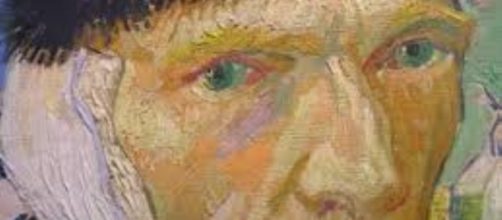History has Van Gogh all wrong. Not only didn’t he do himself in, but he also didn't lop off his ear, either. Latter-day evidence makes these refutations clear. Discrediting the supposed suicide is relatively old news. Last July, this column noted that the artist’s biographers, Steven Naileh and Greg White Smith uncovered evidence demonstrating he was murdered, shot in the stomach while painting in a cornfield a mile from his apartment where he died two days later at age 37.
He didn’t do it
Now new discoveries have been made about the severed ear.
He didn’t do it, Paul Gauguin did. At last the answer to the question that dogged historians: why did Van Gogh self-mutilate? Granted, he was very upset on the night of Dec. 23, 1888. But severing a body part didn’t fit his profile. Apparently, history filled in the blanks by connecting a heated argument he had with his roommate Gauguin that led the French painter moving out. Did losing his roommate matter enough to cut himself? New information suggests he was “infatuated” with Gauguin. It’s notable that, the first request he made at the hospital treating his wound was a visit from Gauguin.
‘Pact of Silence’
The Australian news organization New.com.au reports the publication of a book in 2009 titled “Van Gogh’s Ear: Paul Gauguin and the Pact of Silence” that chronicles what really happened.
German historians Hans Kaufmann and Rita Wildegans, poured over police reports, witness accounts correspondence for ten years and concluded that the self-mutilation was a fiction. The truth was found in the artists’ argument, in an enraged Gauguin, a skilled fencer who whacked off the ear. In an attempt to protect him from prosecution and hold onto their friendship, Van Gogh wrote a letter to him, saying, “I will keep quiet about this and so will you.”
In denial
You’d think that debunking the 130-year-old myth about such a celebrated painter would be welcome news. But the Van Gogh Museum in Amsterdam rejects all the new research. This is not unexpected. A similar reaction came during last year’s revelations that disproved the s suicide.
This treasure house even mounted a show called “On the Verge of Insanity,” insisting that Van Gogh was so beset with emotional problems that they interfered with his work.
One man's truth
But what explains his vast output - more than 900 paintings in a 10-year period? Maybe holding on to the myths serves to juice up attendance – you know, the way a car wreck beckons curiosity-seekers. But haunting this writing is a quote from Gauguin that quashes any idea that Van Gogh was a madman. In Edward Lucie-Smith 1992 tome “Art Anecdotes,” he cited this from the Frenchman: “I don’t admire the painting, but I admire the man. He’s so confident, so calm. I’m so uncertain, so uneasy.” Between the two artists, who do you think cut off the ear?


